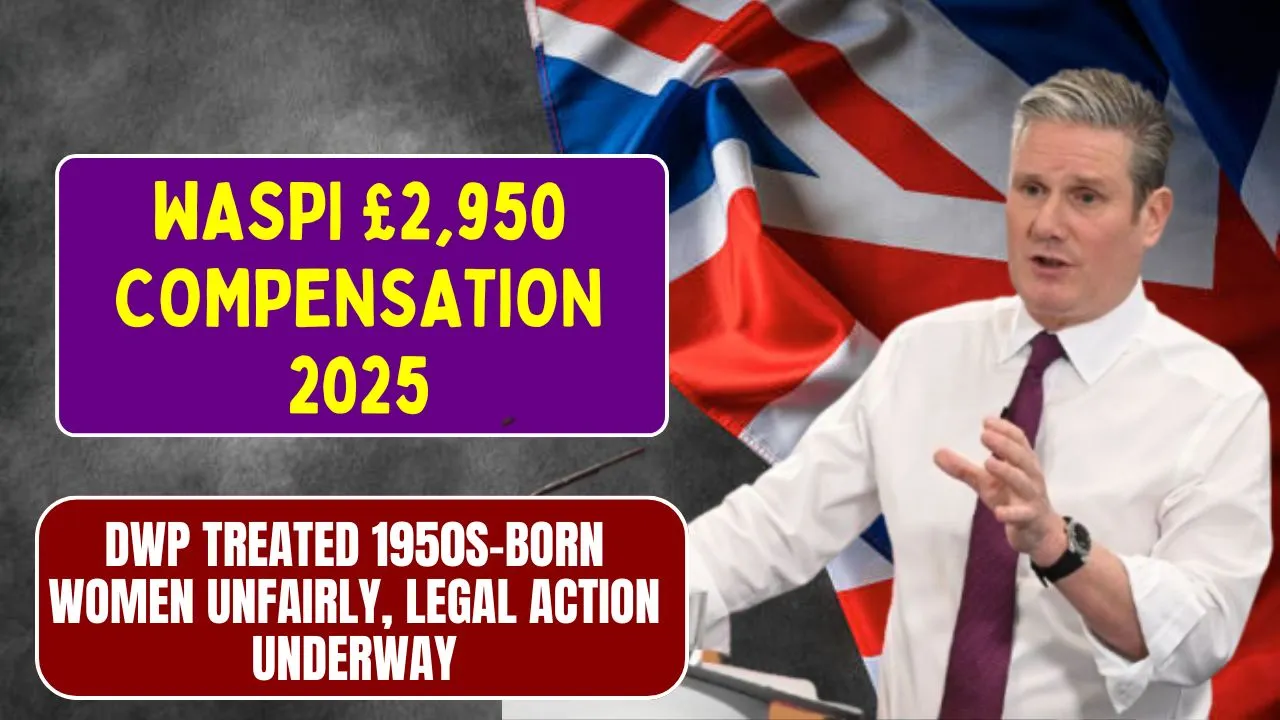DWP £2950 Pension for 1950s Women: Women across the UK who were born in the 1950s continue to fight for justice after changes to their State Pension age left many in unexpected financial difficulty. A campaign led by Women Against State Pension Inequality (WASPI) has reignited national conversation and political pressure, pushing the government to address past failings in how the changes were communicated.
The DWP £2,950 Pension for 1950s Women refers to the recommended compensation amount for those who claim they were not properly informed about the increase in the State Pension age. Thousands of affected women argue they were caught off guard and forced to change their retirement plans, often with no time to prepare. The campaign has now entered legal territory, challenging the government’s refusal to offer compensation.
DWP £2,950 Pension for 1950s Women
Women born in the 1950s were significantly impacted when the State Pension age was raised—first to 65, and later to 66—to align it with men. This change was introduced without proper notification to many of the women affected. The result was widespread confusion and financial strain, as many had planned their retirements based on the previous age of 60.
Campaigners argue that the government failed to adequately inform them about the changes. The DWP £2,950 Pension for 1950s Women campaign is not just about money—it’s about fairness and accountability. According to recommendations made by the Parliamentary and Health Service Ombudsman (PHSO), each woman could receive up to £2,950 in compensation for the hardship caused by maladministration.
Overview Table
| Aspect | Details |
| Affected Group | Women born in the 1950s |
| Issue | Poor communication of State Pension age changes |
| Proposed Compensation | Up to £2,950 per individual |
| Government Acknowledgement | Admitted maladministration but declined compensation |
| Campaign Group | Women Against State Pension Inequality (WASPI) |
| Legal Action | “Letter before action” sent to DWP; High Court action planned |
| Crowdfunding Effort | £75,000 goal to support legal case |
| Government’s Defence | Claimed most women were aware; cost too high to compensate all |
Who Are the WASPI Women?
WASPI stands for Women Against State Pension Inequality, representing women born in the 1950s who were adversely affected by the government’s decision to raise the State Pension age. These women say they were not given sufficient notice, often receiving the news just a few years or even months before their expected retirement.
For many, this meant staying in work longer than planned or facing significant financial hardship. The issue goes beyond delayed pensions—it involves disrupted lives, lost opportunities, and broken expectations. The group continues to fight for recognition and justice.
What Did the DWP Say?
In an official response, the Department for Work and Pensions (DWP) acknowledged a delay in notifying women of the change—specifically a 28-month delay. They admitted this delay was an example of maladministration.
However, they also pointed to their records, suggesting that by 2006, 90% of affected women were aware of the pension age increase. The DWP further argued that it would be unfair to taxpayers to create a large compensation scheme and that only one in four women recalled receiving any official notice.
Why Are WASPI Women Taking Legal Action?
Despite the government’s admission of communication failures, it refuses to pay compensation. This refusal has prompted WASPI to pursue legal action.
They argue that acknowledging the issue but denying any resulting harm is unjust. Many women have spoken out about the emotional and financial toll of the sudden changes. To strengthen their case, WASPI campaigners have sent a formal “letter before action” to the DWP and are now preparing to escalate the matter to the High Court.
Government’s Reason for Refusing Compensation
The government has made its stance clear. While it admits to some failures in communication, it does not accept that these failures justify compensation. It believes:
- A majority of women knew about the change by 2006.
- The total cost of compensation (estimated at £10.5 billion) would be too large a burden on taxpayers.
- The delay in notifying women did not cause widespread serious injustice.
These claims are at the heart of the disagreement, with WASPI arguing that the lived experiences of thousands tell a very different story.
What Happens Next?
With no official resolution from the DWP after the 14-day deadline outlined in WASPI’s legal notice, the campaign is now likely to proceed to court. A £75,000 crowdfunding campaign has been launched to support the legal challenge.
The next steps may determine whether the government will be held financially accountable. Legal proceedings could lead to compensation being mandated, or at the very least, bring greater public attention and political pressure on the issue.
FAQs
What is the WASPI campaign about?
The WASPI campaign seeks justice for women born in the 1950s who were not properly informed about the increase in their State Pension age. They demand compensation for the financial and emotional hardship caused by the lack of notice.
How much compensation are WASPI women seeking?
The Parliamentary Ombudsman recommended that each affected woman could receive up to £2,950, though the government has declined to follow this advice.
What has the DWP said about the claims?
The DWP acknowledges poor communication but argues that most women were aware of the changes and that offering compensation is not financially justifiable.
Is WASPI taking legal action?
Yes. WASPI has sent a legal warning to the DWP and is preparing to go to the High Court if the issue is not resolved.
How can affected women support the campaign?
They can join WASPI’s ongoing efforts, contribute to the legal fund, and raise awareness by sharing their personal stories and engaging with MPs.
Final Thought
The DWP £2,950 Pension for 1950s Women issue is not only about compensation—it’s about restoring dignity and fairness. With thousands of women impacted and a strong campaign pushing forward, the spotlight remains on the government to take meaningful action.
If the voices of those affected continue to rise, this long battle for justice may finally lead to the change and recognition these women deserve.







